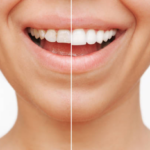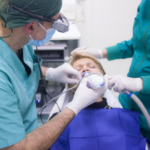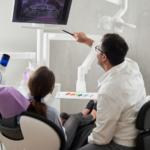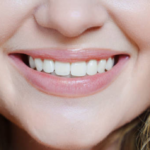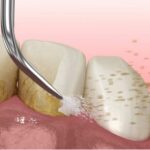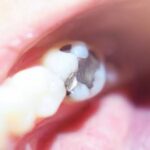You probably know that regular dental visits are essential to maintaining good oral health. But do you know why? Many overlook the importance of cleaning and maintenance appointments until they need major work done or their gums begin to bleed.
If you don’t understand why keeping your pearly whites healthy is essential, read on. Your dentist can give you more information about how often you should visit them, but here are some general tips to keep your teeth strong and clean for the long haul.
Did you know that skipping routine dental appointments can lead to further complications later? It’s true! Depending on your dental problems, they will only worsen and cause more issues soon if left untreated. Here are some reasons why you should never skip dental cleanings:
ADA Recommended Cleanings
The American Dental Association (ADA) publishes guidelines that dentists must follow when treating patients. For adults, the ADA recommends having professional teeth cleaned every six months. This keeps your gums healthy and prevents plaque and tartar from building up.
The ADA also recommends that children visit a dentist every six months for a cleaning, fluoride treatment, and evaluation of their teeth. While these are the general recommendations for dental cleanings, your specific situation may call for different maintenance than others.
Your diet, way of life, and family history may affect how often your dentist tells you to clean your teeth.
Why Are Dental Services Essential?
Regular checkups, cleanings, and fluoride treatments are important because they help prevent oral diseases, such as gingivitis and periodontal diseases. These are infections of the tooth-supporting tissue and the gums that can lead to tooth loss if not treated promptly.
Regular dental visits also allow your dentist to monitor the health of your teeth and advise you on ways to keep your teeth strong. You can also get advice on better care for your teeth at home.
Dental services at the dentist include cleaning, x-rays, and teeth filings services for braces. Some dentists may also provide fluoride treatments, dental sealants, and tooth extractions when necessary.
Benefits of Professional Teeth Cleaning
Dental cleanings remove the film of plaque that builds up on your teeth daily. Plaque is a combination of bacteria, food particles, and a small amount of your saliva. If this plaque is not removed through daily brushing and flossing, it will harden into tartar.
Cleaning your teeth with a toothbrush and toothpaste is not enough to remove all the plaque and tartar. The bristles of a toothbrush are too short to reach all the places where plaque and tartar accumulate.
Your dental hygienist will scrape the plaque and tartar off your teeth with special tools. In many cases, your dental hygienist will use an ultrasonic cleaning device to remove plaque and tartar. This device uses high-frequency vibrations to break down tartar and plaque buildup.
What Teeth Cleaning Visits Provide
Teeth cleaning visits give your dental hygienist a thorough look inside your mouth to see how your oral health is doing. During teeth cleaning, your hygienist will use specialized tools to remove plaque, tartar, and debris from hard-to-reach places in your mouth.
They will also use special cleaning techniques, such as scaling and polishing, to remove stains caused by stain-causing bacteria. Your teeth cleaning will also include a discussion of your current oral health.
Your hygienist will discuss their concerns and recommend any necessary treatments. Teeth cleaning appointments can also be an excellent opportunity to discuss the importance of oral health maintenance with your dentist. This can be helpful if you have specific questions or concerns about your oral health.
What to Expect at Your Next Dental Visit
Sometimes, your dentist may ask you to have a dental exam before your teeth cleaning appointment. If you have not been to the dentist in a while, they may recommend starting with a dental exam.
A dental exam is a thorough oral health check that includes a look at your teeth, the gums around your teeth, the roof of your mouth, and the nerves inside your mouth. If your teeth cleaning appointment is just for cleaning and polishing, your hygienist may ask you to either rinse or spit out any remaining toothpaste when you are finished.
They will then use an ultrasonic dental cleaning device to remove the plaque and tartar from your teeth. They may also use a pick to scrape away any plaque and tartar that remains.
If you have had a dental exam and your dentist has identified some concerns with your oral health, they may suggest treatment and discuss your exam findings.
The Next Part of Your Visit: The Dental Exam
If your teeth cleaning appointment includes a dental exam, your dentist will thoroughly inspect your gums and look for any signs of infection. Your dentist will also look for signs of decay in the roots of your teeth and the bones around them.
Dentists may also suggest taking x-rays of your teeth to see the overall condition of your teeth and gums. This allows them to see the deeper areas of your teeth and jawbone and to help them look for signs of oral health issues that may be invisible to visual examination.
Your dentist will then proceed with cleaning your teeth with a special brush and an antibacterial mouthwash during the dental exam. They are also likely to scrape your teeth and use a pick or dental instrument to remove any stubborn plaque or tartar.
Your dentist may also apply a stain-removing gel to your teeth and tongue during the dental exam. This will make any decay or discoloration on your teeth stand out, so your dentist can see them better and tell you what to do if needed.
A Dental Cleaning and Exam Can Improve Your Wellness
Dental cleaning and exam can improve your overall health and quality of life. Studies show that patients who visit the dentist regularly have lower blood pressure and a lower risk of heart disease than those who don’t visit their dentist regularly. This could be because people with better oral health are less likely to get cavities, one of the leading causes of tooth loss.
Additionally, the bacteria found in and around your teeth can be transferred to your gums, where it can cause gum disease. Gum disease can lead to bone loss around your teeth, resulting in loosened teeth and even tooth loss. Regular dentist trips can help prevent gum disease from getting worse by catching it early and treating it.
Dental cleaning and exam can also help you maintain your dental health as you age. As people age, they are more likely to develop specific oral issues. Bacteria that accumulate inside the mouth cause infections that can be easily transported to the respiratory system and bloodstream, which might give rise to some severe health problems. A quick trip to the dentist can help you avoid all these dilemmas.
How the Condition of Your Teeth Affects Your Body
The bacteria in your mouth can travel through your blood and cause or worsen health conditions like heart disease or diabetes. This is known as periodontal disease, and it can be severe.
If left untreated, bacteria from your teeth can travel through your bloodstream and infect your heart, joints, and other organs. This can lead to heart attack, stroke, and other alarming health conditions.
You can identify and treat any gum disease you may have by visiting the dentist regularly for a teeth cleaning and dental exam. This is essential as it focuses on minimizing and avoiding oral health issues you might have.
Contact Cimarron Family Dentistry For Your Dental Cleaning
Dentistry has advanced significantly during the past few decades. Dental cleanings are quick, effective, and minimally painful when performed by professionals.
At Cimarron Family Dentistry, we will explain each procedure in detail, whether you need a simple cleaning to get rid of tartar or a more complicated procedure like root planing for your gums or a root canal. Our friendly team and specialists are ready to help you.
Allow us to assist you in restoring your smile or maintaining healthy teeth. We simplify the process, so call us immediately to schedule an appointment!


